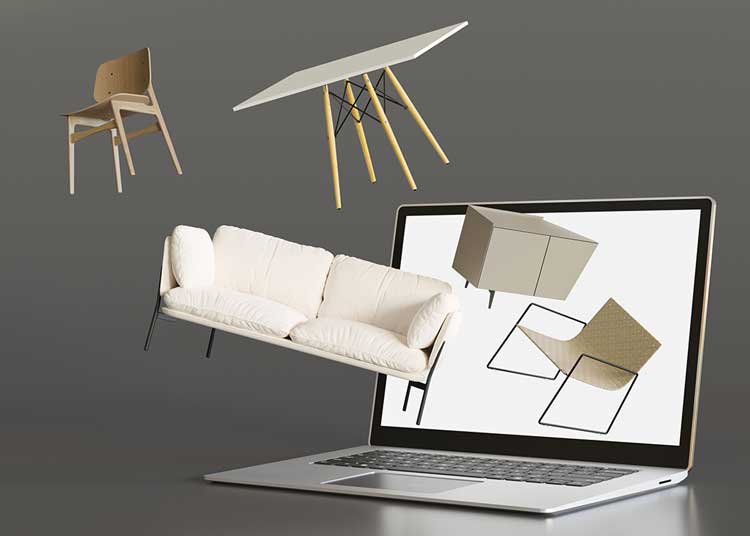Buying Furniture Online or Via Catalog
Last updated November 2024

The only compelling reason to buy via the web is price. But in our experience, local retailers often offer prices that are roughly equivalent to—and often below—prices on the web when delivery costs are added. Delivery from web-based sellers often costs $150 to $200 for large pieces; local stores sometimes charge less and may throw in free delivery.
Even if you’re getting a great price online, consider these possible drawbacks:
- Shopping online makes it difficult to try before you buy. “I think, for the average person, you need to sit on a chair or sofa before buying it,” says Washington, D.C., interior designer Kerra Michele. “There are so many different depths of seats and heights. What’s comfortable to you might not work for your 6-foot-3-inch husband.”
- It can be challenging to determine quality from online photos, particularly from brands or makers you don’t know well.
- There may be long delays between when you order and when you get your furniture; since many online retailers source products overseas, the waits may be loooong.
- Some web-based stores offer delivery only via freight carrier. Goods might be deposited in your front yard or driveway, meaning you must haul them into your home and unpack them. For an extra fee, many stores do offer “white glove” delivery, which includes unpacking, assembly, and placement.
If you do order online, a few suggestions:
- Go for white glove delivery.
- Don’t sign to accept delivery until you have done a thorough inspection. Spot a flaw? Immediately contact the store for a remedy.
- Read the small print and pay by credit card so you can, if needed, dispute the transaction with your card company.


